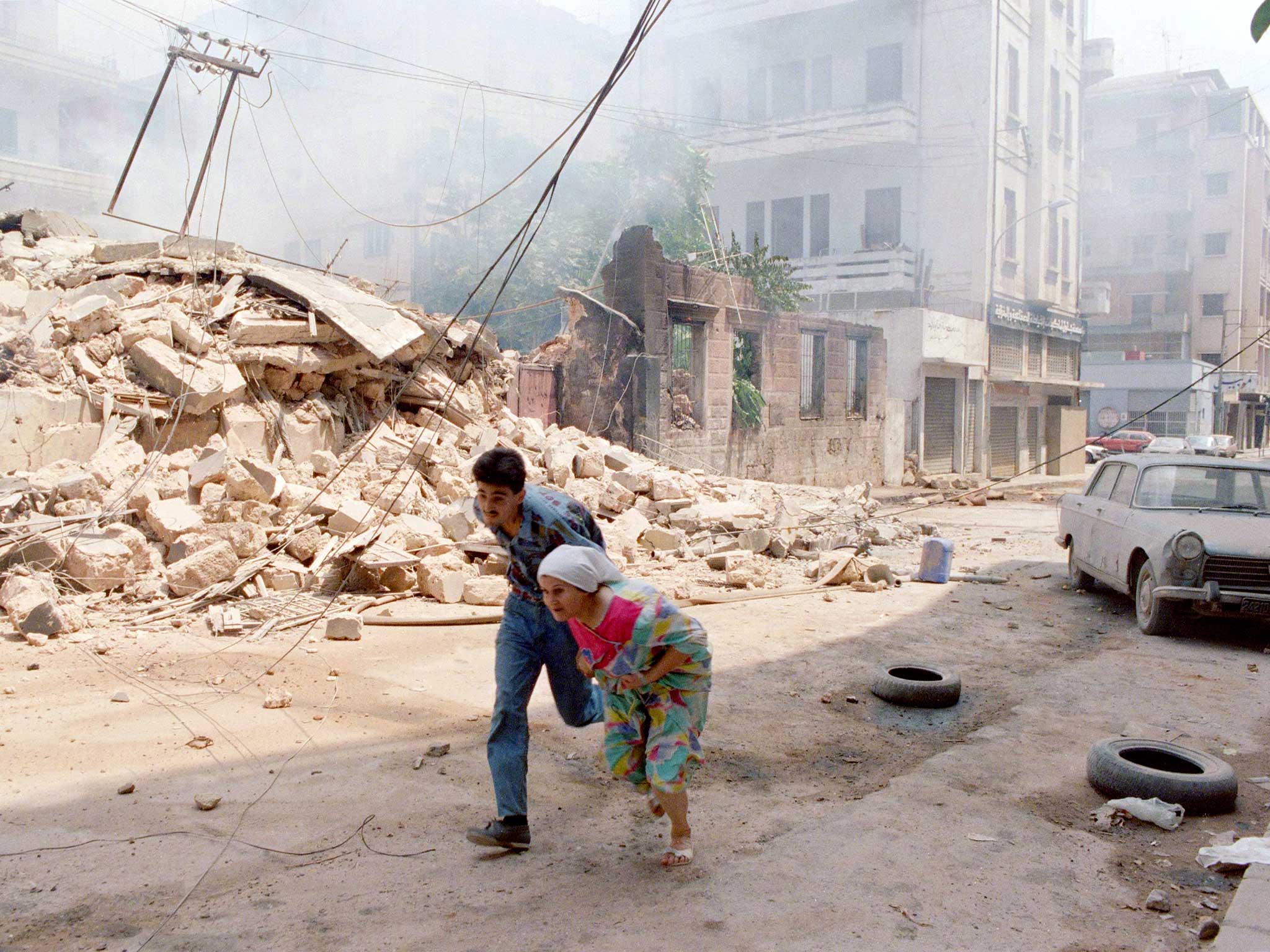The Syrians had no chance...
Meeting an injured soldier in the Syrian army before a heavy night of shelling

Lebanon, 21 July 1989
Private Yahia Saloum of the Syrian army sat on the stairs of my apartment block, his head in his hands, a large bandage strapped to his chest. The blood was beginning to seep through the gauze and every few seconds, as the explosions burst around our building, the soldier pulled his shirt open to stare at his wound as if still unable to believe the shrapnel had hit him next to the heart.
He would not lie down. He was frightened, stunned. But he could talk. He was from Latakia. He had never been in a war before. Whenever a shell burst in the street outside, he would look up sharply, holding one hand to the back of his head and stare through the doorway Then his look would fall to the bright red candle that flickered on the marble floor. When his two colleagues stumbled into the building, panting with exhaustion, shaking with fear, Private Saloum smiled just briefly then dropped his head back into his hands.
It was a bad night. It started at 10pm when the old Syrian 130mm gun behind our house began firing at a distant ship moving towards the Christian coastline. The Christians usually fire three or four shells back. Whenever this happens, I move from my bed to a mattress by the door. But on Wednesday night, General Michel Aoun’s army – and apparently the Christian Phalange militia as well – swamped the seafront with shells. The Syrians had no chance. The first round hit the car-park outside our house, blasting a column of dirt and rocks so high in the sky that it fell across the side of the building, showered through the wooden shutters of my bedroom and covered me in sand as I lay on the mattress. There were screams from the Syrian soldiers who regularly park one of their trucks beside my home. Another shell hit the road 20ft from the house; tiles began falling off my kitchen wall.
I peered from the front balcony. A small pink light, a tracer artillery round, moved in a wide arc towards an unfinished hotel down the corniche. Long ago, in the glorious days of peace which all Lebanese claim to remember and to which all theoretically aspire to return, this was to be the Beirut Sheraton Hotel.
It is now a headquarters for soldiers of the Syrian army’s 85th Brigade.
General Aoun’s artillery had been directed exclusively at the Syrian gun pits further down the road. No longer. Five or six shells must have landed in front of the gaunt building before the first ammunition truck blew up. It was a flash of light followed by exploding Howitzer shells, rocket-propelled grenades and small-arms ammunition which bathed the sea in golden light, sending a funnel of black smoke through the 12 storeys. There were more screams as one lorry after another, eight in all, caught fire and exploded.
The Phalange had promised us a night like this. Its commander, Samir Geagea, had warned the Syrians the day before that if they did not lift their sea blockade he would increase his participation in General Aoun’s war. The Syrians had ignored him. We could see them in the street, running for their lives.
Private Saloum just sat on our stairway shaking his head. His two colleagues sat beside him, chain-smoking, one with his arm round the wounded man’s shoulders. A neighbour sat on a chair in the corner. For once, even my landlord was terrified, pacing the hallway and cursing as his nieces and sisters crouched behind the stairwell in their night-clothes.
One of Private Saloum’s colleagues wanted to talk. The Syrians were strong, he said. “If we wanted, we could go into east Beirut any time and wipe out Aoun,” he said. ‘We could take the place over in 24 hours. But this is not what we want to do.” No? Then what was he waiting for? For the sixth visit of Lakhdar Ibrahimi of the Arab League? For the very last Beirut ceasefire? The resignation of General Aoun?
At 3am, the shelling suddenly ended. A crimson bonfire glowed from the Syrian headquarters. Private Saloum was able to walk to the door, leaning on the arm of one of the two soldiers. “Take him to hospital,” my landlord said. At dawn, the radio gave us the night’s scorecard of civilian fatalities: at least four dead, 20 wounded. But that, of course, did not include Private Saloum or the soldiers screaming in the night.
Join our commenting forum
Join thought-provoking conversations, follow other Independent readers and see their replies
Comments
Bookmark popover
Removed from bookmarks